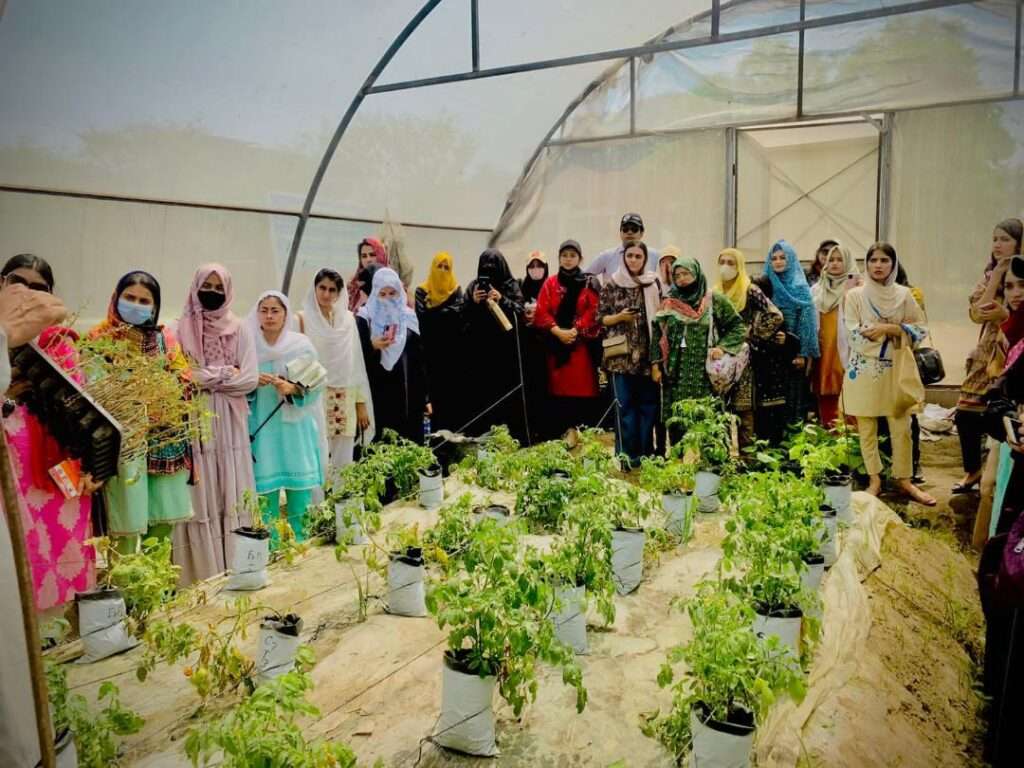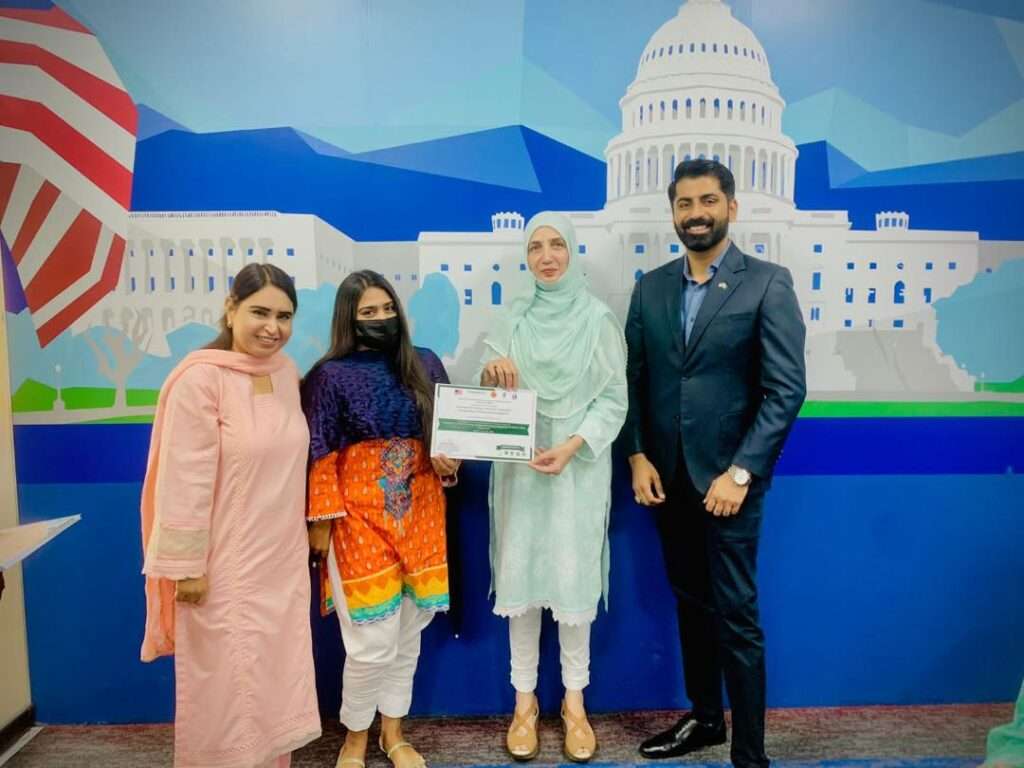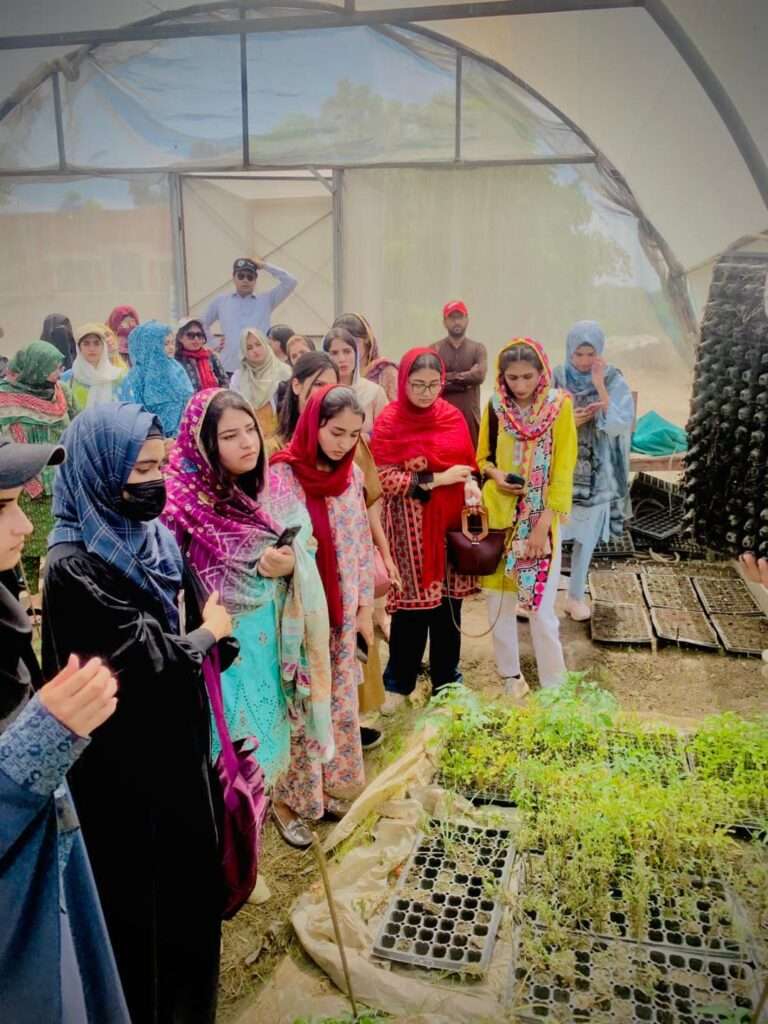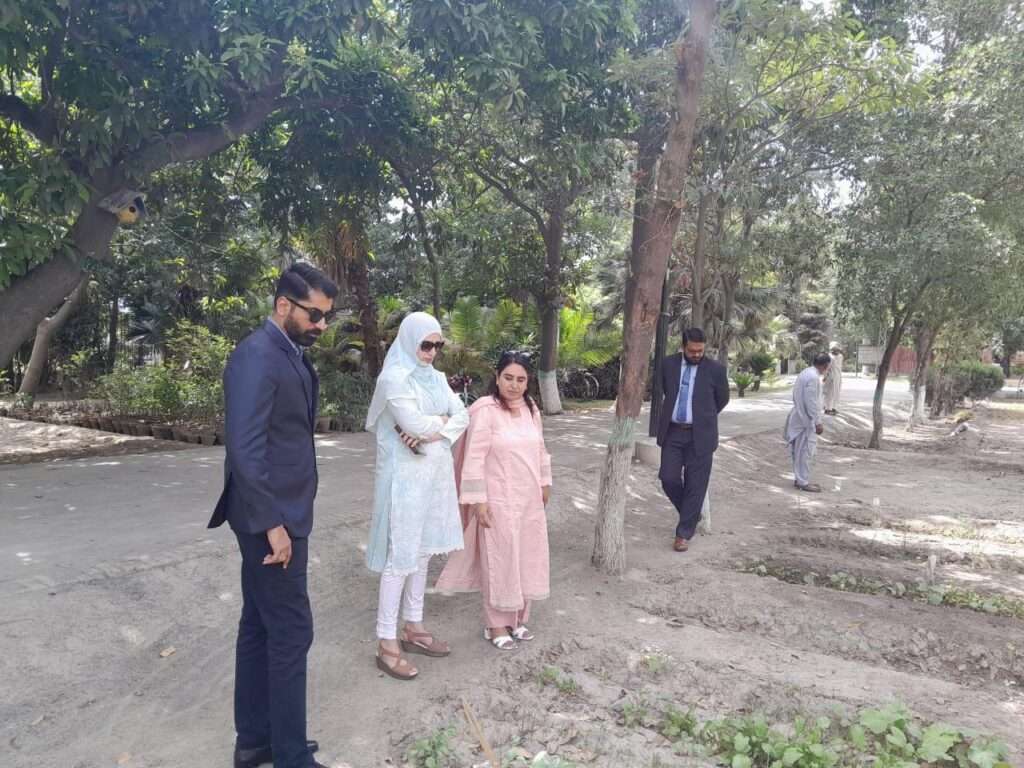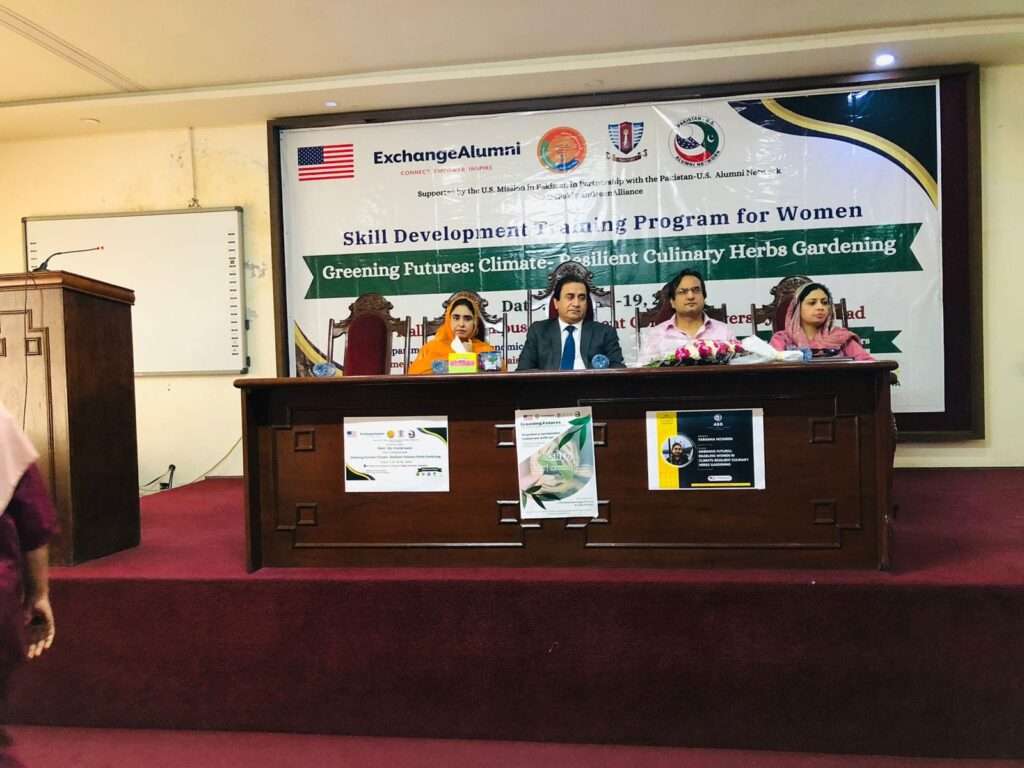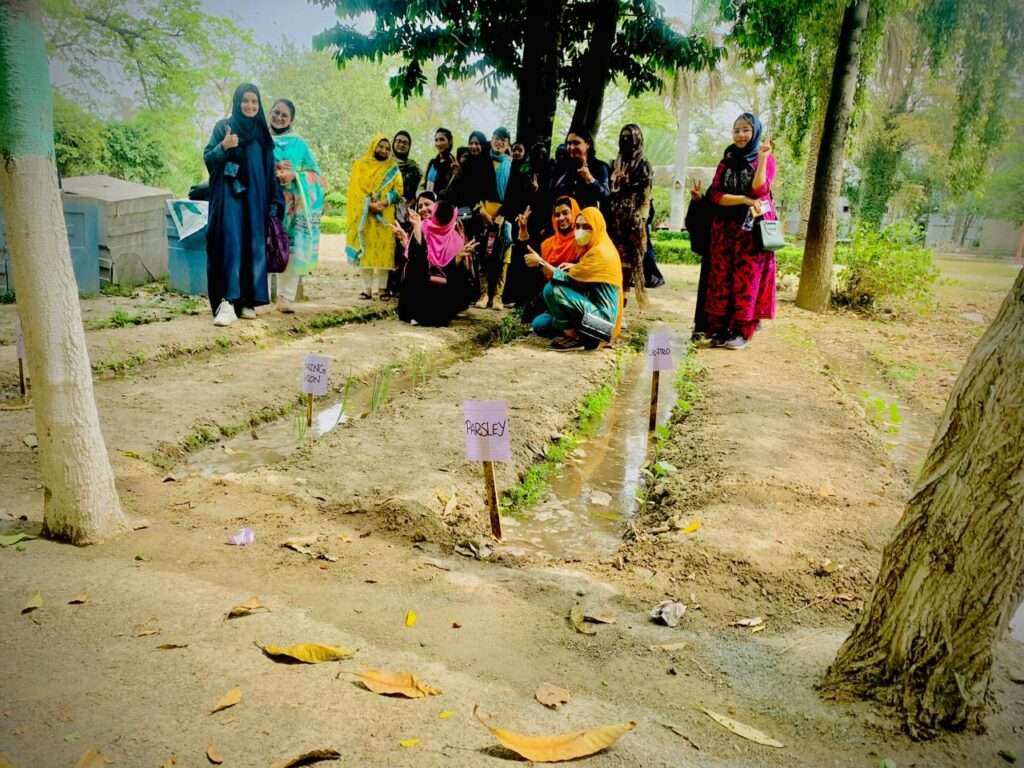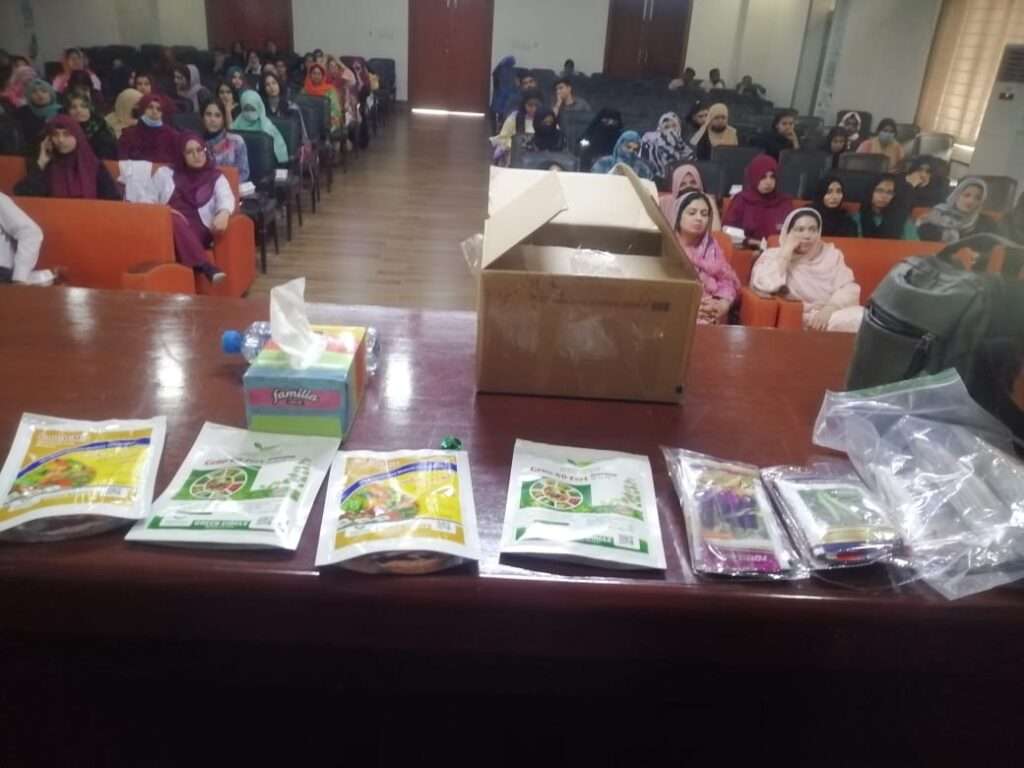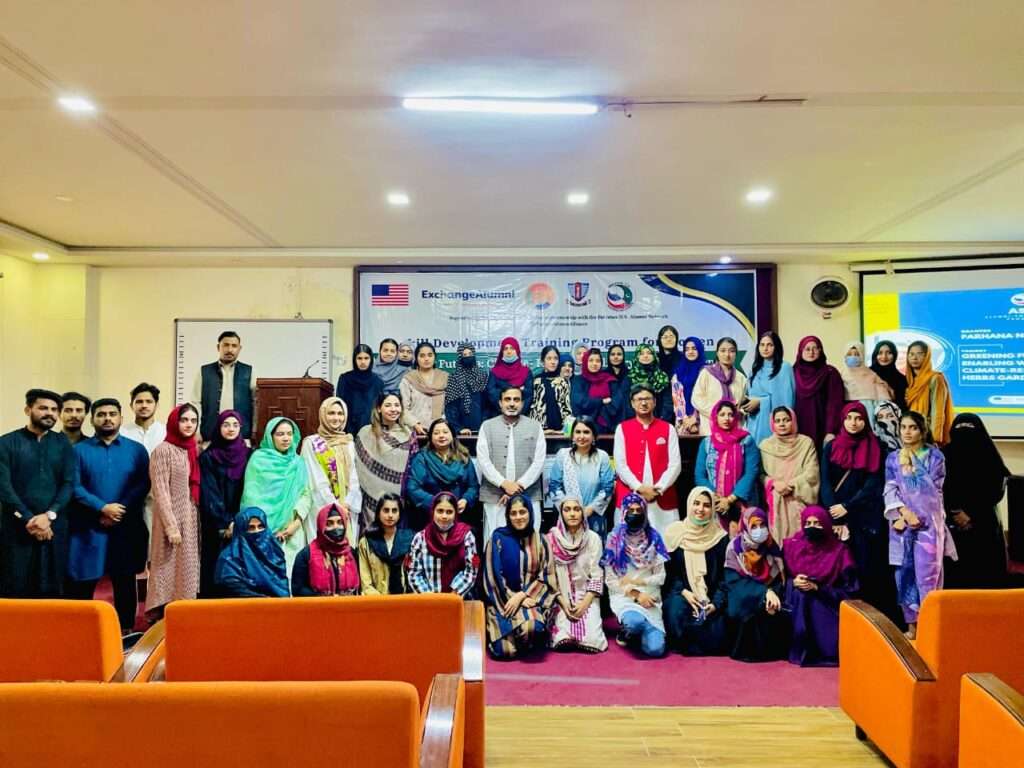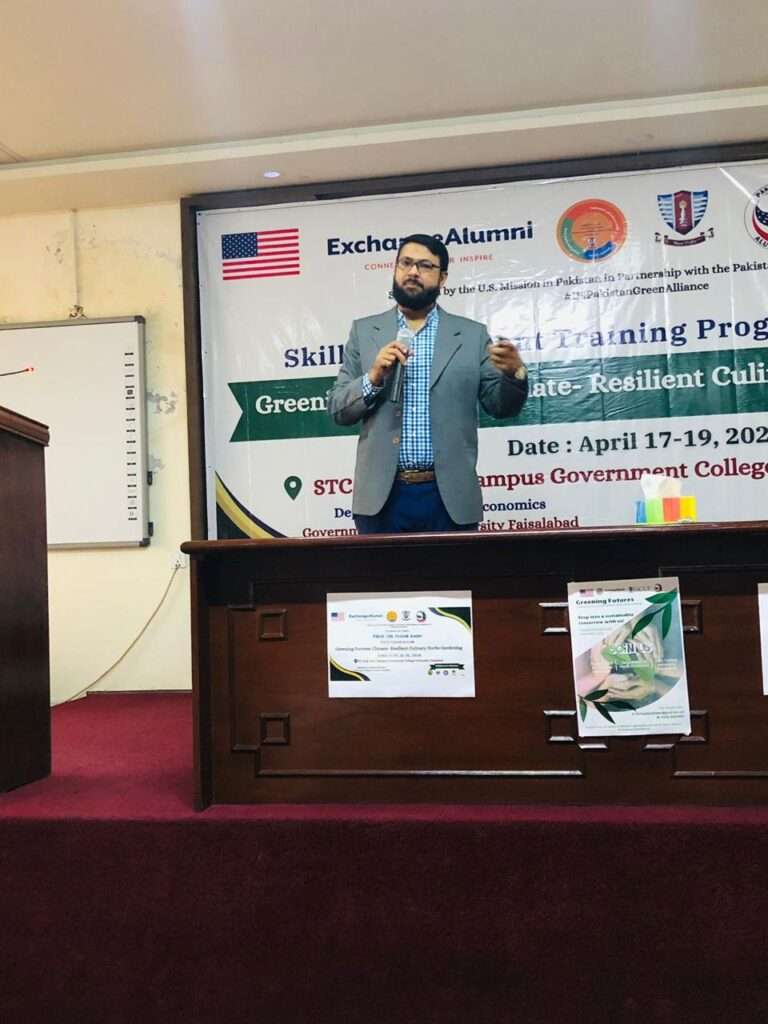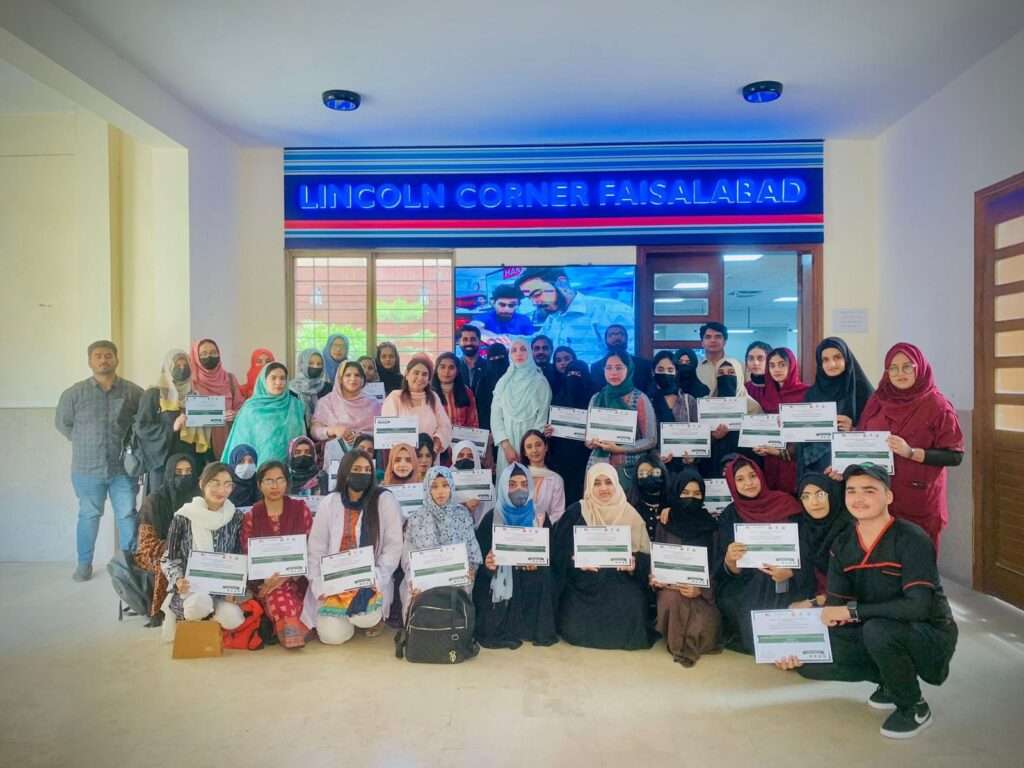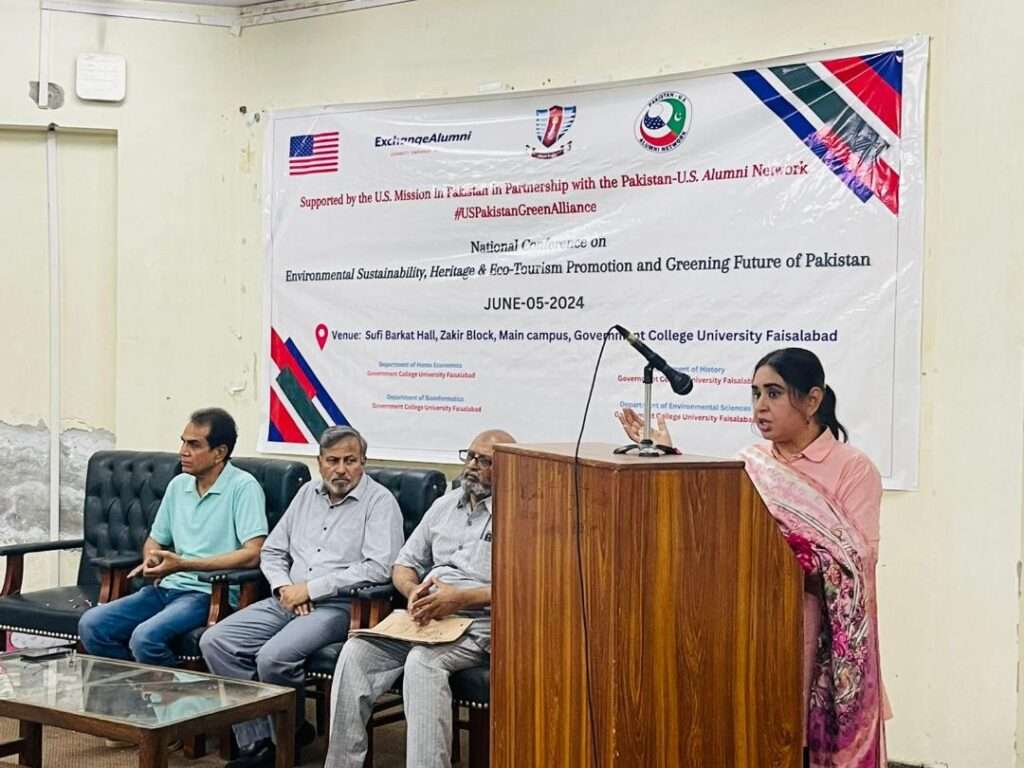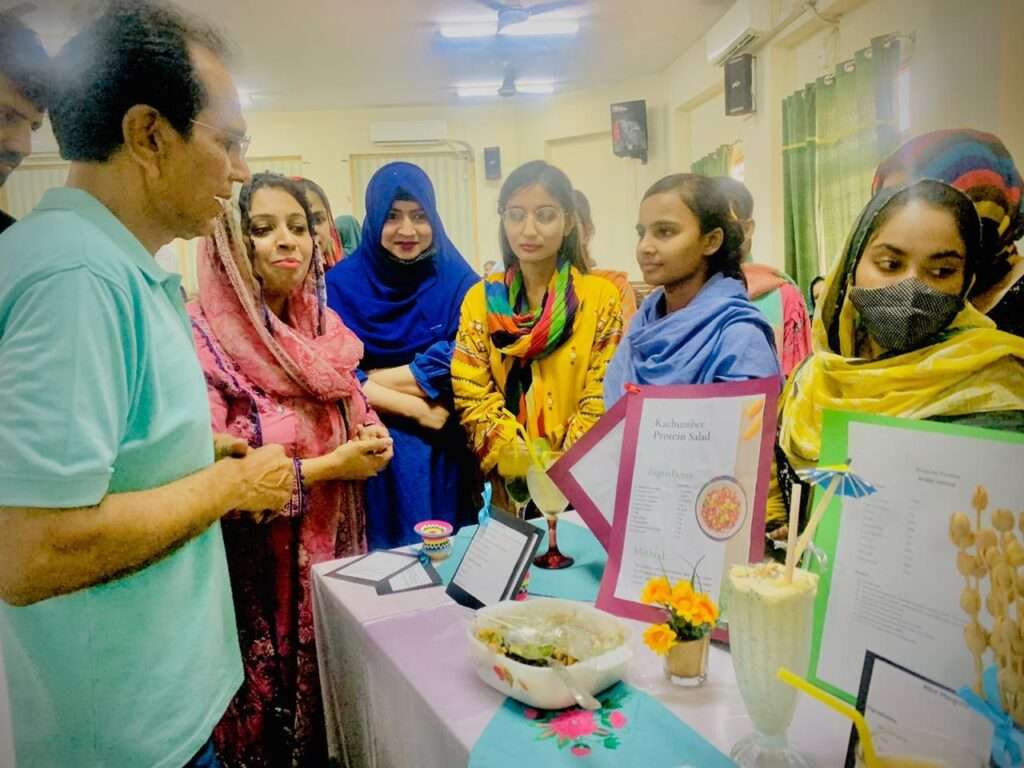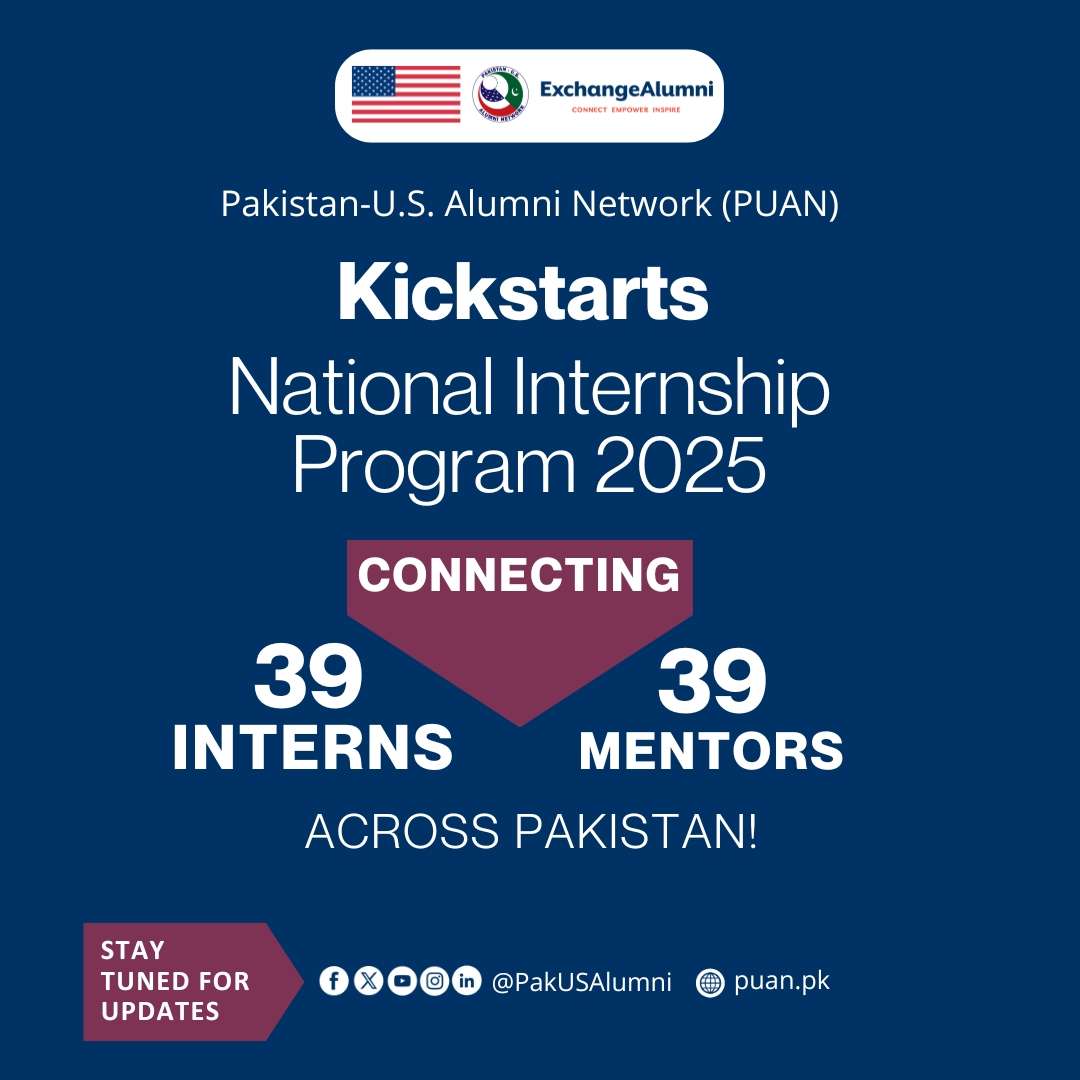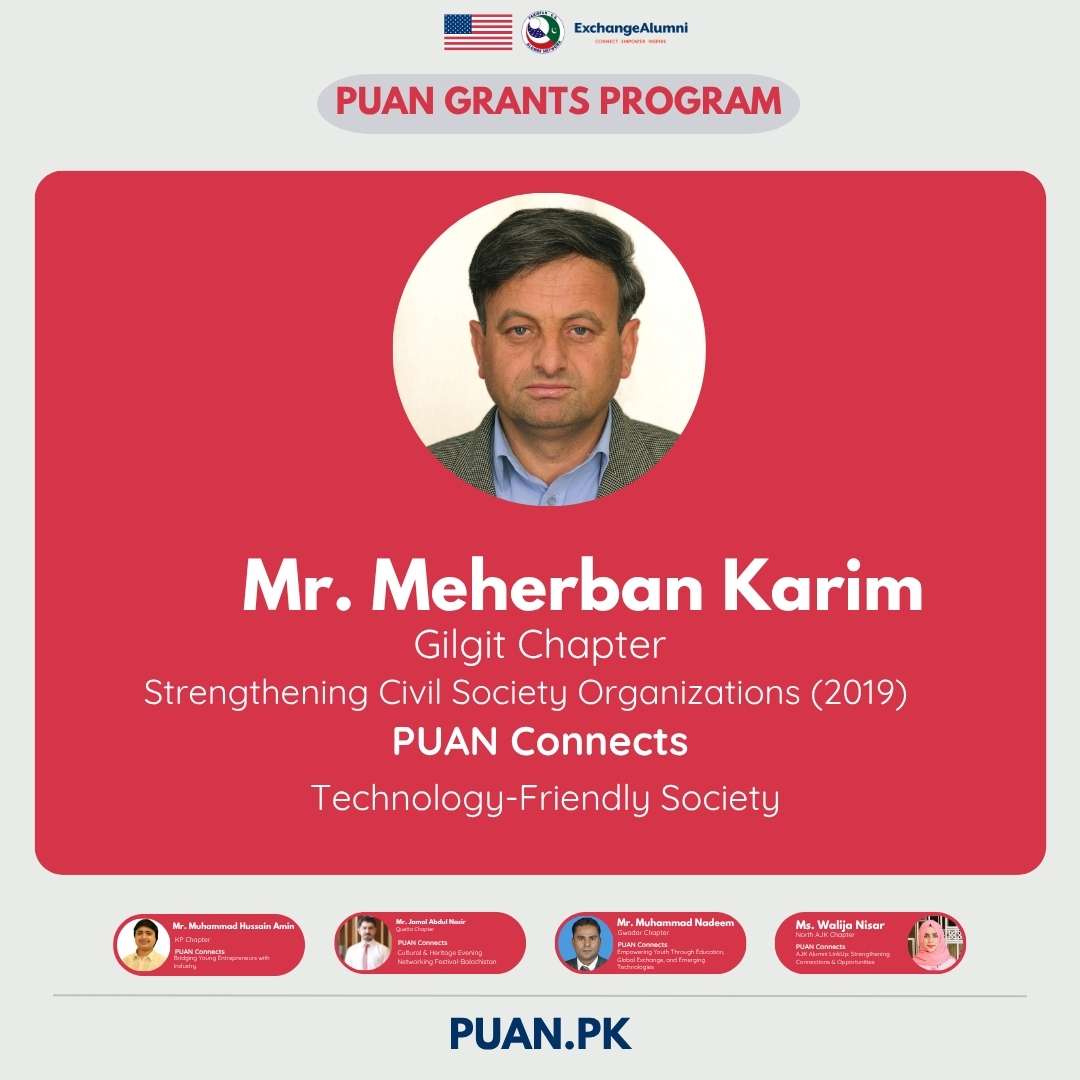In this current era of inflation and ever-increasing price hike, becoming self sufficient in organic produce of herbs and daily greens could be green changer. Not only this can provide green growers with lifelong skills but can in turn contribute to their well-being by addressing the issues of nutritional deficiencies. With similar thoughts in mind, our Fulbright scholar and Associate Professor Farhana Nosheen from GC University Faisalabad took initiative. Fast forward six months, her Alumni Small Grant (ASG) project on Climate Resilient Culinary Herbs Gardening has left an indelible mark on the lives of many women in the community.
The ASG project, led by Farhana Nosheen, directly benefited 300 individuals, including 50 males and 250 females. Indirectly, it impacted an additional 600 people, comprising 100 males and 500 females. The project saw active involvement from 10 PUAN alumni team members and 40 beneficiaries, all working together over a span of 16 weeks to achieve remarkable outcomes
With 17 years of experience in Agricultural Extension, Farhana Nosheen is dedicated to rural women’s empowerment through food production, education, and entrepreneurship. As an Associate Professor at GC University Faisalabad and a distinguished Fulbright alumna, she has passionately worked on projects that promote community development. Her recent ASG project aimed to equip women with the skills to cultivate a variety of culinary herbs, covering everything from soil preparation to pest management and marketing. Inspired by this success, Farhana aspires to introduce Green Certification and innovative training tools like virtual reality simulations to further sustainable gardening practices.
The Culinary Herbs Gardening project was conceived to address multiple pressing issues. By teaching women to grow climate-resilient herbs, the project aimed to support biodiversity, improve soil health, and sustain local ecosystems. In a time of drastic climate changes affecting soil fertility and cultivation patterns, these small steps towards greening our lands have profound benefits. The project not only enhanced environmental sustainability but also offered life skills development, improved health and nutrition, economic savings, community engagement, educational opportunities, entrepreneurship, and mental well-being.
One of the most remarkable outcomes of the project was the creation of a robust network connecting women trainees with experts from diverse fields such as horticulture, environment, food and nutrition, business management, hotel and tourism management, sociology, Parks and Horticulture Authority Faisalabad, Leo Lions Club, and local NGOs. This collaboration fostered a rich exchange of knowledge and experiences, enabling participants to address challenges related to gardening and marketing. The project successfully bridged the gap between women gardeners and experts, promoting sustainable practices and empowering participants.
Voices of Change
Maham Abid, 20, Faisalabad: “I learned new techniques of companion gardening to manage pests, like growing spinach with mint.”
Noor ul Saba, 39, Faisalabad: “The free herbs gardening training was wonderful. It provided me with insights into the benefits of connecting with nature, reducing stress, and exploring entrepreneurship in culinary herbs.”
It can be rightly said this ASG project was able to meet its goals. A post-training national conference that was organized by Farhana Nosheen on International Environmental Day at GC University Faisalabad, connected participants with experts to promote sustainable agricultural practices. Additionally, a comprehensive training handbook that was developed to cover all aspects of herb gardening and its therapeutic benefits would act a reference point for such similar initiatives.
More power to you Farhana for empowering these women and equipping them with much needed-green skills.
